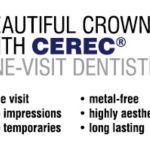
- 1 - Understanding Implant Care for Elderly
- 2 - Why Oral Hygiene Matters for Seniors with Implants
- 3 - Best Practices for Oral Hygiene with Implants
- 4 - Common Mistakes to Avoid in Implant Care
- 5 - Recommended Products for Elderly with Implants
1. Understanding Implant Care for Elderly
Dental implants are a popular solution for elderly individuals who have lost teeth. They provide a durable, natural-looking alternative to traditional dentures. However, just like natural teeth, implants require proper care and maintenance to ensure they remain in excellent condition. For seniors, understanding how to care for dental implants is crucial to prevent issues such as infection, implant failure, and gum disease.
2. Why Oral Hygiene Matters for Seniors with Implants
Oral hygiene is essential for everyone, but it is especially important for seniors with dental implants. Implants are vulnerable to plaque buildup, just like natural teeth. If plaque is not removed, it can lead to gum inflammation and bone loss, which may jeopardize the success of the implant. In addition, poor oral hygiene can contribute to other issues such as bad breath and an increased risk of oral infections. Maintaining a clean mouth helps keep the gums healthy and supports the longevity of implants.
3. Best Practices for Oral Hygiene with Implants
To ensure optimal oral health, elderly individuals with implants should follow a few key practices:
- Brush regularly: Brush teeth and implants twice a day with a soft-bristled toothbrush and fluoride toothpaste. Be sure to clean around the base of the implant to remove any food particles and plaque buildup.
- Use floss or an interdental brush: Dental floss may not reach all areas around implants, so it's recommended to use an interdental brush or a special floss designed for implants.
- Rinse with an antibacterial mouthwash: Use a mouthwash specifically designed for implants to help reduce bacteria and plaque buildup.
- Regular dental checkups: Regular visits to a dentist are essential for monitoring the health of implants and gums. Your dentist can professionally clean the implants and detect any potential problems early.
4. Common Mistakes to Avoid in Implant Care
Even with the best intentions, some elderly individuals may make mistakes in their implant care routine. Here are a few common mistakes to avoid:
- Neglecting gum health: It’s easy to focus on the implants themselves and forget about the gums. However, healthy gums are essential for implant stability. Make sure to brush and floss around the gums regularly.
- Using harsh brushing techniques: Brushing too hard can damage the gum tissue and implants. Always use gentle pressure when brushing to avoid harming the gums or implant fixtures.
- Skipping regular dental visits: Even if everything seems fine, regular checkups are crucial. Skipping appointments may lead to undetected issues that could compromise the success of the implants.
5. Recommended Products for Elderly with Implants
To maintain good oral hygiene, it’s important to use the right products. Here are some recommended tools and products for seniors with implants:
- Soft-bristled toothbrush: A soft-bristled toothbrush is gentle on both implants and gums, helping to prevent irritation and gum recession.
- Antibacterial mouthwash: A mouthwash designed for implants can help reduce plaque and prevent gum disease. Look for a product that is alcohol-free to avoid irritation.
- Interdental brushes: These small brushes help clean the spaces between teeth and around implants more effectively than traditional floss.
- Fluoride toothpaste: A fluoride toothpaste helps to remineralize the enamel around implants and prevent cavities in remaining natural teeth.
At Family Dentistry Online, you can find the best products to suit your implant care needs. Our range of dental hygiene tools ensures that your oral health is well-maintained with minimal effort. Visit our site for expert recommendations and products tailored to your needs.







 Perfect Smile Dental Care4.0 (487 review)
Perfect Smile Dental Care4.0 (487 review) North Dover Dental of Toms River4.0 (257 review)
North Dover Dental of Toms River4.0 (257 review) Waukegan Dental Wellness0.0 (0 review)
Waukegan Dental Wellness0.0 (0 review) The Orthodontic Group of Chester County4.0 (71 review)
The Orthodontic Group of Chester County4.0 (71 review) Emergency Dentist 24/7 Downingtown1.0 (1 review)
Emergency Dentist 24/7 Downingtown1.0 (1 review) Bellingham Dental Arts4.0 (27 review)
Bellingham Dental Arts4.0 (27 review) The Importance of Oral Health Education During Pregnancy for a Healthy Pregnancy
The Importance of Oral Health Education During Pregnancy for a Healthy Pregnancy Best Tips for Brushing Your Teeth Properly for Healthy Gums: Essential Techniques for Oral Health
Best Tips for Brushing Your Teeth Properly for Healthy Gums: Essential Techniques for Oral Health Why Skipping Dental Checkups Can Lead to Bigger Oral Health Problems
Why Skipping Dental Checkups Can Lead to Bigger Oral Health Problems Advantages of Porcelain Dental Restorations
Advantages of Porcelain Dental Restorations How Can Diabetes Cause Tooth and Gum Problems? Preventing and Managing Oral Health Issues
How Can Diabetes Cause Tooth and Gum Problems? Preventing and Managing Oral Health Issues Healthy Habits for Promoting Good Oral Health and Hygiene: Tips for a Healthy Smile
Healthy Habits for Promoting Good Oral Health and Hygiene: Tips for a Healthy Smile